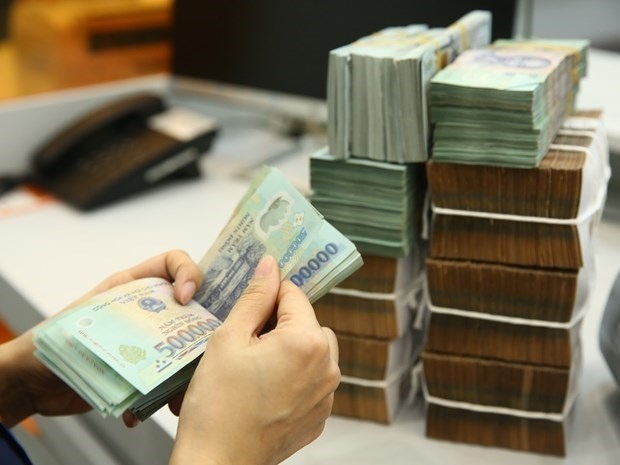Banking sector focuses on credit institution restructuring
The banking sector should take more drastic measures to restructure credit institutions in association with the settlement of bad debts to contribute to curbing inflation and stabilising macro-economic factors, according to insiders.
Data from the State Bank of Vietnam (SBV) show that as of June 15, the credit outstanding balance of the economy had reached about VND12.32 quadrillion (over US$523.9 billion), up 3.36% compared to the end of 2022 and 8.94% over the same period last year.
In the restructuring of credit institutions associated with bad debt settlement, the central bank maintains the drastic implementation of tasks and solutions mentioned in the project on restructuring credit institutions associated with bad debt settlement in the 2021-2025 period. Meanwhile, State-owned commercial banks continue to play a dominant role in the system of credit institutions in terms of capital size, assets, capital mobilisation, and credit.
SBV Standing Deputy Governor Dao Minh Tu said that the banking sector has continuously implemented all mechanisms and policies; and tried as hard as possible to ensure the successful completion of its political tasks of controlling inflation, stabilising the macro-economy, and accompanying businesses to remove difficulties, and promote its role as a state management agency in ensuring the safe and healthy operation of the credit institution system, and gradually restructuring poorly performing credit institutions to limit losses.
Currently, there are four banks with poor performances subject to compulsory restructuring and transfer (acquired by the State for zero VND and assigned to large banks to operate), namely Dong A Commercial Joint Stock Bank (DongABank), Vietnam Construction Commercial One Member Limited Liability Bank (CBBank), Ocean Commercial One Member Limited Liability Bank (Oceanbank), and Global Petro Commercial Joint Stock Bank (GPBank).
As for the Sai Gon Joint Stock Commercial Bank (SCB), in late October 2022, the central bank put this credit institution under special control.
SBV Governor Nguyen Thi Hong said that the restructuring of banks with poor performances is a backlog and very difficult to handle. Restructuring such a bank in normal conditions is already very difficult, and it is even more difficult in this current condition.
According to experts, the restructuring of credit institutions associated with bad debt settlement needs to aim at the highest goal of making the financial and monetary market healthy, and improving the governance capacity of these institutions in accordance with law and international practices.
In addition, special attention should be paid to the control and handling of bad debts in the context of declining economic activities and enterprises facing difficulties in production and sale.
It is necessary to continue strengthening the inspection and supervision to focus on effectively handling ineffective commercial banks, ensure liquidity and system safety, and concentrate on handling existing bad debts and preventing new ones.

